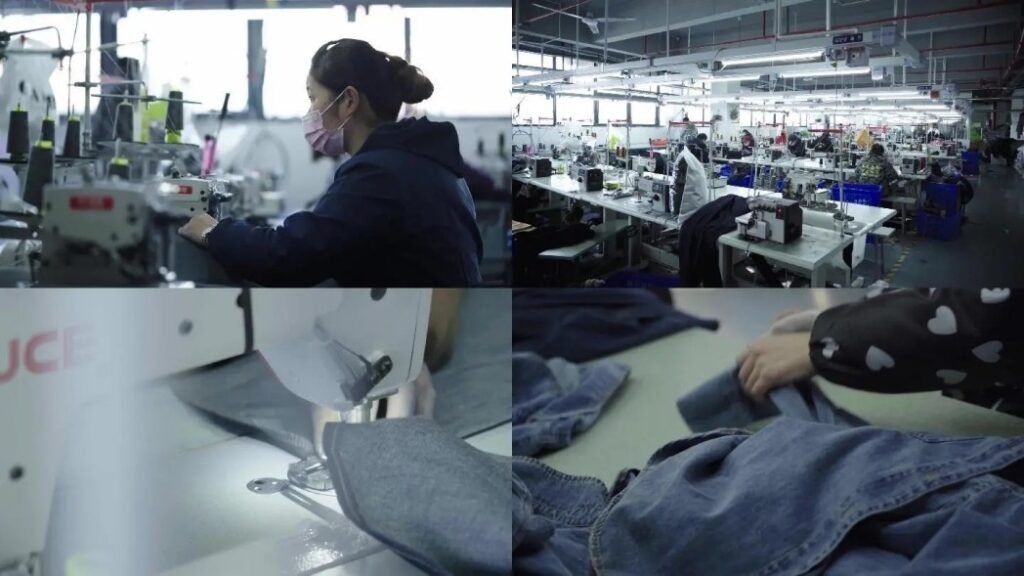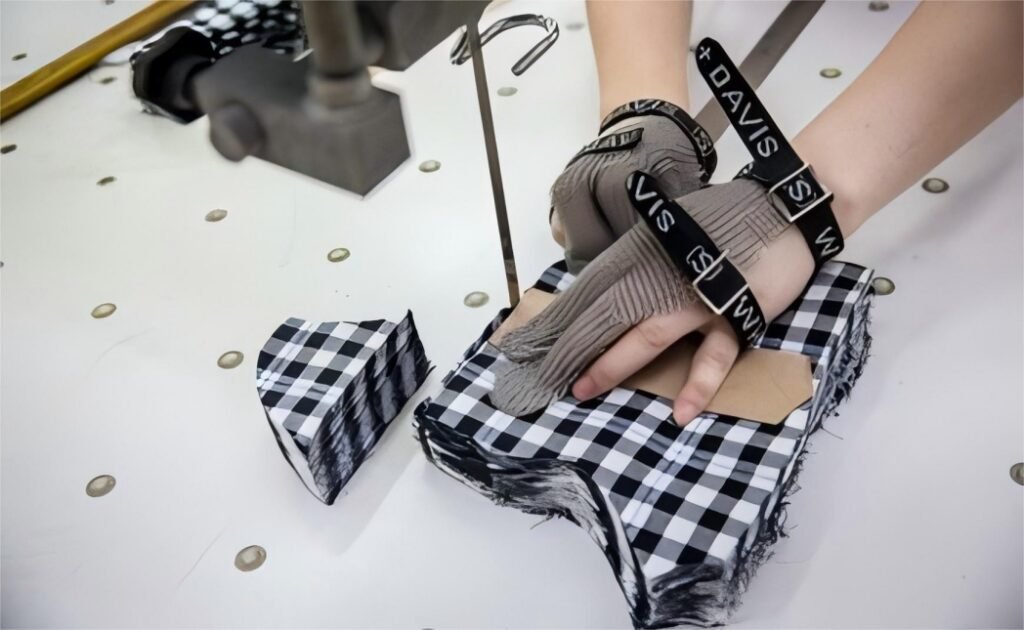No products in the cart.
Custom Yoga Pants
Apparel Manufacturer Near Me: Local Sources for High-Quality Clothing
Introduction: Finding Apparel Manufacturers Near Me for High-Quality Clothing
Finding Apparel Manufacturer near me, In today’s globalized world, it can be challenging to find high-quality clothing that is made locally. However, there is a growing trend of consumers seeking out local apparel manufacturers for their clothing needs. These manufacturers offer a range of benefits, from superior craftsmanship to ethical and sustainable practices. This article will explore the advantages of choosing local apparel manufacturers, factors to consider when selecting one, and provide a comprehensive overview of some of the top local apparel manufacturers. We will also compare local manufacturers to overseas suppliers, discuss how to identify high-quality clothing from local manufacturers, and highlight the importance of supporting the local economy. Additionally, we will provide tips for collaborating with local apparel manufacturers, share success stories of local manufacturers, discuss sustainability and ethical practices in local apparel manufacturing, and explore future trends in the industry. By the end of this article, readers will have a thorough understanding of the benefits and considerations associated with choosing local sources for high-quality clothing.

Benefits of Choosing Local Apparel Manufacturers
When it comes to clothing, quality is paramount. Local apparel manufacturers often prioritize quality over quantity, resulting in garments that are made to last. These manufacturers typically employ skilled artisans who take pride in their work and pay attention to every detail. By choosing local manufacturers, consumers can expect superior craftsmanship and attention to detail that may be lacking in mass-produced garments.
In addition to quality, choosing local apparel manufacturers also supports the local economy. By purchasing clothing made locally, consumers are directly contributing to the growth and sustainability of their community. Local manufacturers create jobs and stimulate economic growth, which has a positive ripple effect on the entire community. Furthermore, supporting local businesses helps to preserve the unique character and identity of a region, as local manufacturers often incorporate local materials, techniques, and designs into their products.
Factors to Consider When Selecting an Apparel Manufacturer Near You
When selecting an apparel manufacturer near you, there are several factors to consider. Firstly, it is important to assess the manufacturer’s reputation and track record. Look for reviews and testimonials from previous customers to gauge their level of satisfaction. Additionally, consider the manufacturer’s experience and expertise in the specific type of clothing you are looking for. Some manufacturers specialize in certain types of garments, such as activewear or formal wear, while others offer a more diverse range of products.
Another crucial factor to consider is the manufacturer’s production capacity. Ensure that the manufacturer has the capacity to meet your production needs, whether you are a small boutique or a large retailer. It is also important to inquire about their lead times and turnaround times to ensure that they can deliver your orders within your desired timeframe.
Furthermore, consider the manufacturer’s sustainability and ethical practices. Inquire about their sourcing of materials, their treatment of workers, and their commitment to minimizing their environmental impact. Choosing a manufacturer that aligns with your values and priorities will not only ensure that you are supporting ethical practices but also appeal to consumers who are increasingly conscious of the social and environmental impact of their clothing choices.
Top Local Apparel Manufacturers: A Comprehensive Overview
There are numerous local apparel manufacturers that offer high-quality clothing. Here is a comprehensive overview of some of the top local manufacturers in various regions:
1. ABC Apparel Co. (New York, USA): ABC Apparel Co. is known for its impeccable craftsmanship and attention to detail. They specialize in luxury menswear and have a reputation for producing garments that exude sophistication and elegance.
2. XYZ Garments Ltd. (London, UK): XYZ Garments Ltd. is a leading manufacturer of sustainable and ethically produced clothing. They are committed to using organic and recycled materials and have implemented fair labor practices throughout their supply chain.
3. PQR Activewear (Sydney, Australia): PQR Activewear is a local manufacturer that specializes in high-performance activewear. Their garments are designed to withstand rigorous workouts while providing maximum comfort and style.
4. LMN Couture (Paris, France): LMN Couture is a renowned couture house that creates exquisite, one-of-a-kind garments. Their skilled artisans meticulously handcraft each piece, resulting in garments that are truly works of art.

Local Apparel Manufacturers vs. Overseas Suppliers: Pros and Cons
When it comes to choosing between local apparel manufacturers and overseas suppliers, there are pros and cons to consider. Overseas suppliers often offer lower production costs, which can translate into lower prices for consumers. They may also have access to a wider range of materials and technologies. However, there are several drawbacks to working with overseas suppliers.
One major disadvantage is the lack of control and oversight. When working with overseas suppliers, it can be challenging to ensure that ethical and sustainable practices are being followed. There have been numerous instances of labor exploitation and environmental degradation in overseas manufacturing facilities. Additionally, communication and language barriers can lead to misunderstandings and delays in production.
On the other hand, local apparel manufacturers offer several advantages. Firstly, working with local manufacturers allows for greater control and oversight throughout the production process. It is easier to visit the manufacturing facility, meet the workers, and ensure that ethical and sustainable practices are being followed. Local manufacturers also offer shorter lead times and faster turnaround times, which can be crucial for businesses that require quick replenishment of inventory. Furthermore, by choosing local manufacturers, businesses can build strong relationships and foster collaboration, leading to better communication and a deeper understanding of each other’s needs and expectations.
How to Identify High-Quality Clothing from Local Manufacturers
Identifying high-quality clothing from local manufacturers requires a keen eye for detail. Here are some key indicators to look for:
1. Fabric quality: High-quality clothing is often made from premium fabrics that feel soft, durable, and luxurious. Look for natural fibers such as cotton, silk, and wool, as they tend to be more breathable and long-lasting.
2. Stitching: Pay attention to the stitching on the garment. High-quality clothing will have even, straight stitches with no loose threads or puckering. The stitching should be strong and secure, ensuring that the garment will withstand regular wear and washing.
3. Finishing touches: Examine the finishing touches of the garment, such as buttons, zippers, and trims. High-quality clothing will have well-attached buttons, smooth-running zippers, and neatly finished trims. These details indicate attention to detail and superior craftsmanship.
4. Fit and drape: Try on the garment and assess the fit and drape. High-quality clothing will fit well and flatter the body, with no pulling or sagging. The garment should drape naturally and move with the body, indicating that it has been cut and constructed with precision.
Supporting Local Economy: The Importance of Choosing Local Apparel Manufacturers
Choosing apparel manufacturers near me is not only beneficial for consumers but also for the local economy. When consumers purchase clothing made locally, they are directly supporting local businesses and contributing to the growth and sustainability of their community. Local manufacturers create jobs and stimulate economic growth, which has a positive ripple effect on the entire community.
Furthermore, supporting local businesses helps to preserve the unique character and identity of a region. Local manufacturers often incorporate local materials, techniques, and designs into their products, showcasing the cultural heritage and craftsmanship of the region. By choosing local apparel manufacturers, consumers are not only investing in high-quality clothing but also in the preservation of their community’s cultural and economic vitality.
Tips for Collaborating with Local Apparel Manufacturers
Collaborating with local apparel manufacturers can be a rewarding experience, but it requires effective communication and collaboration. Here are some tips for a successful collaboration:
1. Clearly communicate your expectations: Clearly communicate your design specifications, quality standards, and production requirements to the manufacturer. Provide detailed sketches, measurements, and any other relevant information to ensure that both parties are on the same page.
2. Establish a timeline: Agree on a timeline for production and delivery. Ensure that both parties are aware of the lead times and turnaround times required to meet your deadlines.
3. Regular communication: Maintain regular communication with the manufacturer throughout the production process. Provide feedback and address any concerns or issues promptly. This will help to ensure that the final product meets your expectations.
4. Visit the manufacturing facility: If possible, visit the manufacturing facility to see the production process firsthand. This will allow you to assess the working conditions, meet the workers, and gain a deeper understanding of the manufacturer’s capabilities and practices.
Case Studies: Success Stories of Local Apparel Manufacturers
There are numerous success stories of local apparel manufacturers that have thrived by prioritizing quality, sustainability, and ethical practices. One such success story is that of DEF Clothing Co., a local manufacturer based in San Francisco, California. DEF Clothing Co. specializes in sustainable and ethically produced clothing made from organic and recycled materials. They have gained a loyal customer base by offering high-quality garments that are both stylish and environmentally friendly. DEF Clothing Co. has also implemented fair labor practices throughout their supply chain, ensuring that their workers are treated with dignity and respect. Their success demonstrates that it is possible to create a thriving business while prioritizing ethical and sustainable practices.

Sustainability and Ethical Practices in Local Apparel Manufacturing
Sustainability and ethical practices are increasingly important considerations in the apparel industry. Local apparel manufacturers have the advantage of being able to closely monitor and control their supply chain, ensuring that sustainable and ethical practices are followed. Many local manufacturers prioritize the use of organic and recycled materials, reducing their environmental impact. They also implement fair labor practices, ensuring that workers are paid fair wages and provided with safe working conditions.
Furthermore, local manufacturers often have a smaller carbon footprint compared to overseas suppliers. By sourcing materials locally and minimizing transportation distances, they reduce the environmental impact associated with shipping and logistics. Additionally, local manufacturers are often more transparent about their practices, allowing consumers to make informed choices and support brands that align with their values.
Future Trends in Local Apparel Manufacturing
The future of local apparel manufacturing looks promising, with several trends shaping the industry. One major trend is the rise of customization and personalization. Consumers are increasingly seeking unique and personalized clothing that reflects their individual style. Local manufacturers are well-positioned to cater to this demand, as they can offer made-to-measure and customizable options that mass-produced garments cannot.
Another trend is the integration of technology into the manufacturing process. Local manufacturers are embracing automation, artificial intelligence, and data analytics to streamline production and improve efficiency. This allows them to produce high-quality clothing at a faster pace, meeting the demands of today’s fast-paced fashion industry.
Additionally, sustainability and ethical practices will continue to be at the forefront of the industry. Consumers are becoming more conscious of the social and environmental impact of their clothing choices and are demanding transparency and accountability from brands. Local manufacturers that prioritize sustainability and ethical practices will have a competitive advantage in the market.
Conclusion: Embracing Local Sources for High-Quality Clothing
In conclusion, choosing local apparel manufacturers for high-quality clothing offers numerous benefits. Local manufacturers prioritize quality, craftsmanship, and attention to detail, resulting in garments that are made to last. By supporting local manufacturers, consumers contribute to the growth and sustainability of their community, while also preserving the unique character and identity of the region. When selecting a local manufacturer, it is important to consider factors such as reputation, experience, production capacity, and sustainability practices. By identifying high-quality clothing from local manufacturers, consumers can ensure that they are investing in garments that meet their expectations. Collaborating with local manufacturers requires effective communication and regular feedback. Success stories of local manufacturers demonstrate that it is possible to create thriving businesses while prioritizing sustainability and ethical practices. The future of local apparel manufacturing looks promising, with trends such as customization, technology integration, and sustainability shaping the industry. By embracing local sources for high-quality clothing, consumers can make a positive impact on their community and the environment while enjoying garments that are made with care and craftsmanship.
